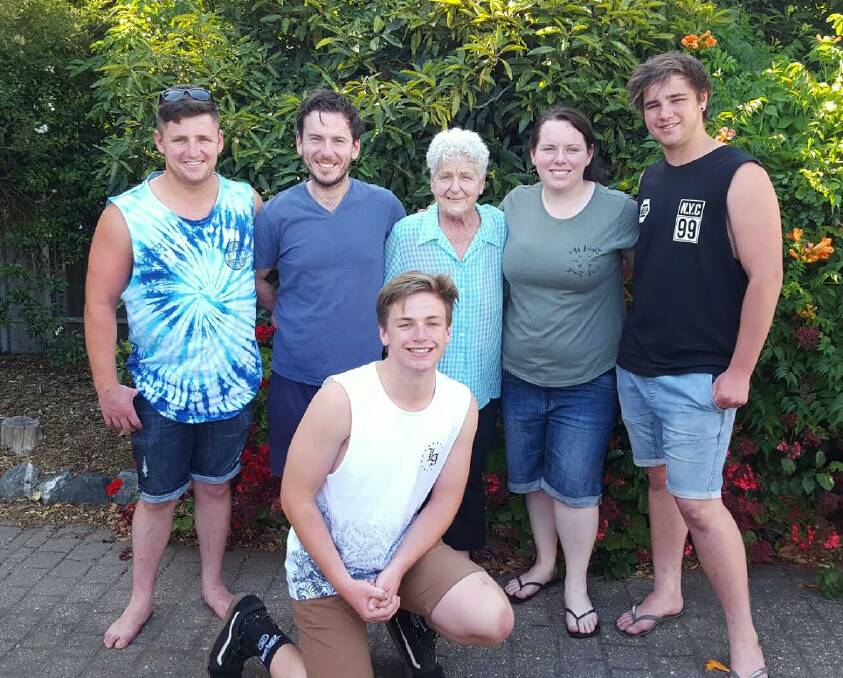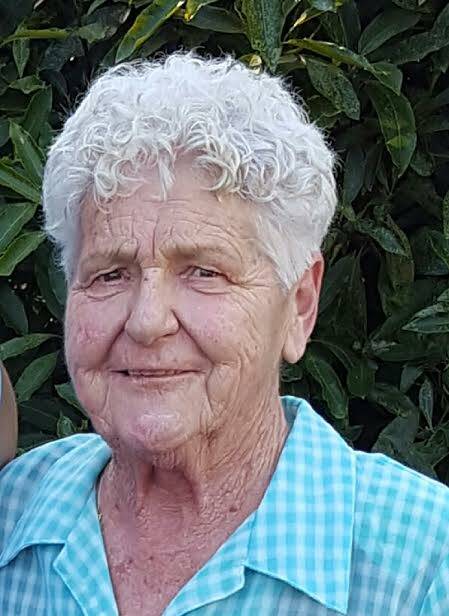
On August 4 last year, the lives of Stawell sisters Liz Harrington and Kelly Curran were “normal”, but that quickly changed when their mother was diagnosed with bowel cancer the next day.
Subscribe now for unlimited access.
or signup to continue reading
“It was just like walking over a dark, dark line,” Ms Harrington said.
“We thought our mother was fine and it was in really trying circumstances that we found out her diagnosis.”
Helen Chapman was rushed into emergency at Stawell Regional Health and later conveyed to Horsham Base Hospital.
“I can remember Mum putting her hand on my arm and saying I think it’s serious, the doctors want to speak to us the next day,” Ms Harrington said.
They found out the next morning Ms Chapman had a large tumor in her bowel and needed to be removed.
Secondary cancer had also formed in her liver and lung.
“The minute you find out that any member of your family has cancer, let alone your mother, it is just incomprehensible,” Ms Harrington said.
“Being able to go to the toilet, feeling competent in her normal life, that was all taken away from her.”
Ms Chapman was then placed into intensive care, where she remained for five weeks.
But Ms Harrington admitted there were moments she did not believe her mother would make it out alive.
“At one stage I called up the rest of the family from Melbourne because I thought she was going to die then,” she said.
“And you can imagine how traumatising that would have been.
“But she made it out, she’s pretty tough my mother is.”
Ms Curran said after five weeks of “trying” circumstances in Horsham, Ms Chapman arrived home and said something she would never forget.
“One of mum’s comments was I am not at fault for asking for help, I am at fault for not complaining,” she said.
“She felt there was not something right within her body, but she didn’t know what.
“If that was me sick Mum would have said go to the doctors.
“Listen to your heart and your own body, if you’re not happy then keep going until you find answers.”
Ms Chapman died in March.
The most important message Ms Harrington said she had taken from the journey was to advocate for yourself, your health and your future.

“Whether it be cancer, some sort of illness, or anything, speak up and advocate for yourself,” she said.
“If you don’t feel right about something, don’t do it. If you don’t feel comfortable with something, get a second opinion.
“Doctors are not God, they can certainly help you and are terrific people, but you also know yourself if something is not right.”
The state government pledged $1.6 million to a Wimmera Cancer Centre on Monday.
The facility will offer oncology, dialysis and community-based palliative care, with construction expected to start in November.
Around 17,000 Australians are diagnosed with bowel cancer each year, with the majority of people aged over 55.
A total of 15 tests returned positive for bowel cancer at Stawell last year.
Ms Harrington and Ms Curran said the region could only benefit from a specialist cancer service.
“We met the most amazing team at Stawell chemotherapy and palliative care,” Ms Curran said.
“But we had to go through hell to get to the end of the road to meet them.”
Ms Curran said after her mother’s diagnosis, they were “bombarded” with services knocking on her mother’s door.
“We didn’t understand all these services that were jumping on board,” she said.
“Who are you and who are you?
“Mum was inundated and it came to the point where she didn’t even want to say the word cancer.
“She was 77, dealing with cancer and trying to deal with it in her mind- she said I just want to be normal for a day.”
Ms Curran said a specialist cancer treatment centre would have prevented a lot of the chaos her family endured.
“There were too many fingers in the pie,” she said.
“It should be one organisation, one person who knocks on your door and that is what this new project can bring.
“Mum’s last doctor knew the cancer, where it would hurt her and what it would do.”
Ms Harrington said her and her sister were there everyday supporting their mother.
“Our lives stopped,” she said.
“My sister works long hours, shift work, and I work two jobs.
“We were driving to Horsham every day and spending every minute with Mum.
“Apart from it all being exhausting, you would change your life for your parent in a heartbeat.”
Ms Harrington recalled a nurse who had sat down with her and Ms Curran, tears streaming down his face, the nurse told them he never got close to his patients, but that was what Ms Chapman had done.
“Palliative care is not just about dying,” Ms Harrington said.
“It is truly genuine people that give you a hug and make you that cup of tea.
“It was Mum’s wish to die at home, but it’s the second best thing to know she died at Gandarra Palliative Care in Ballarat, a home away from home.”
Ms Harrington and Ms Curran urged others to get checked, to love your mother and to love your family.
“Breast, prostrate, bowel, these checks will keep your family together,” they said.
“And that is what will keep the memory of Mum alive.”
I am not at fault for asking for help, I am at fault for not complaining.
- Helen Chapman


